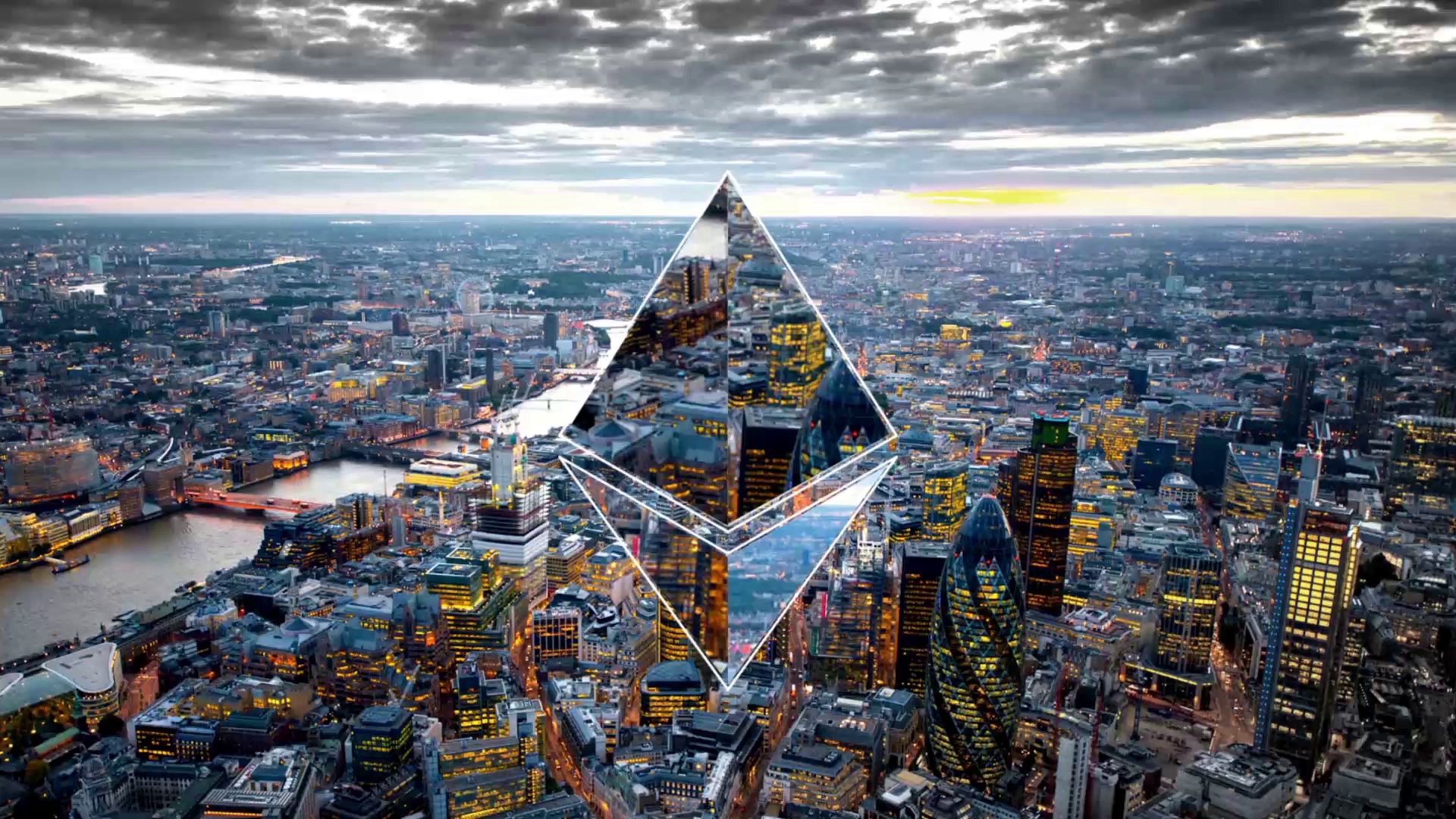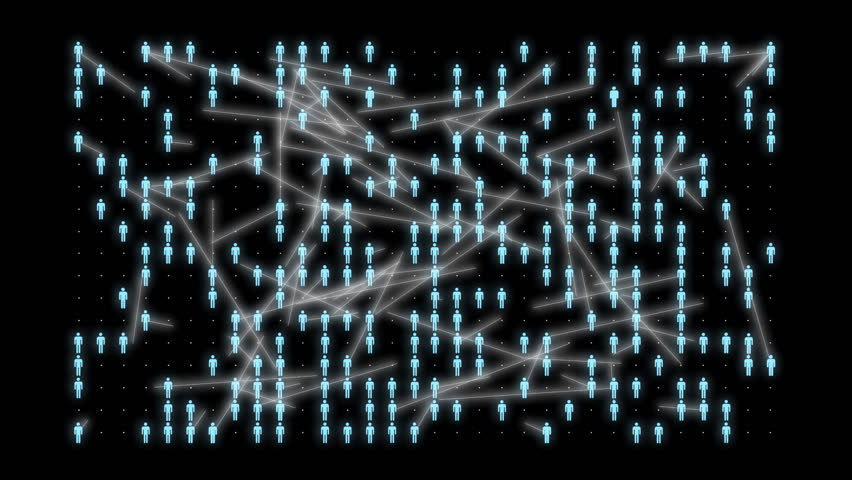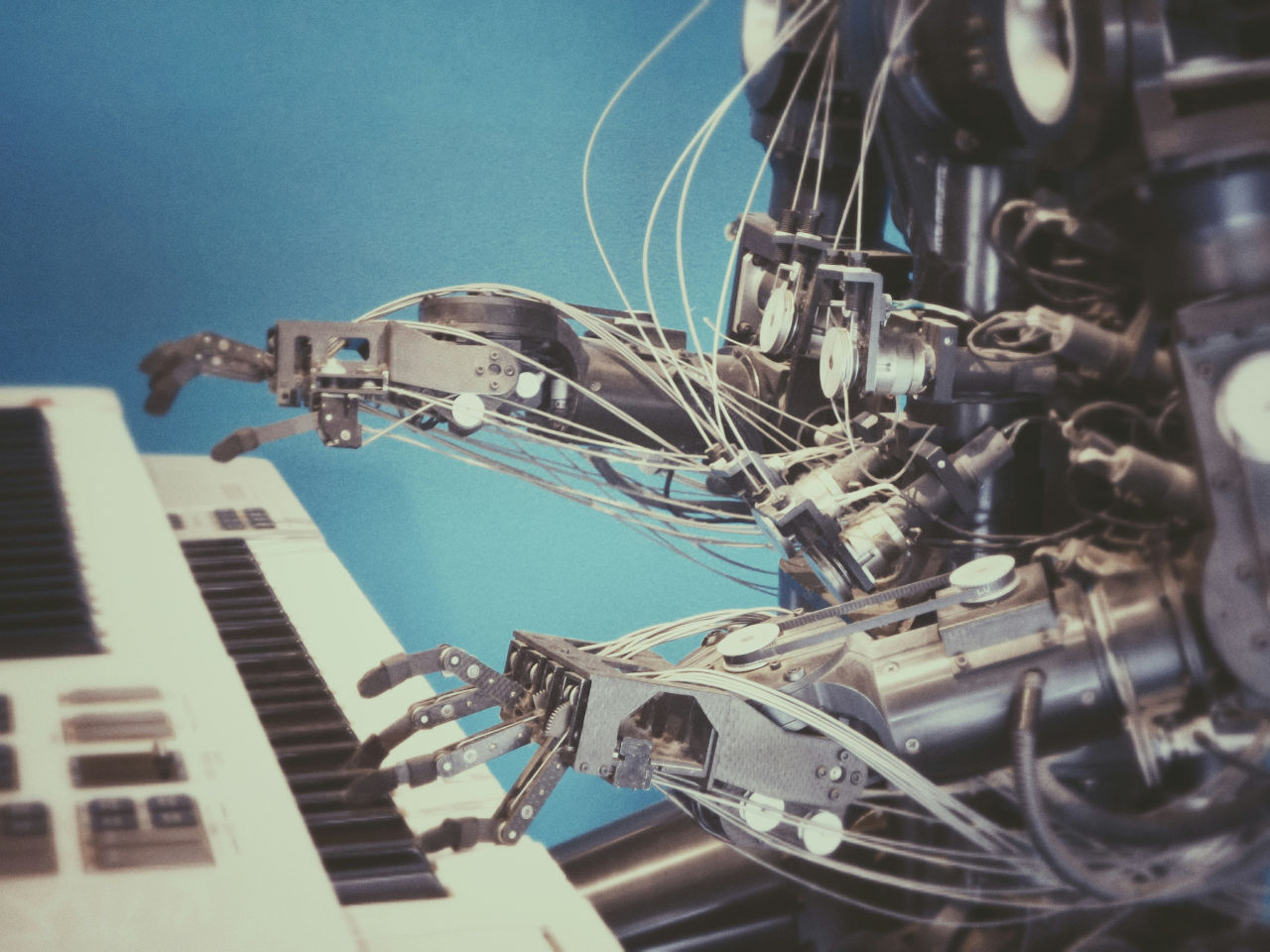Most of us have the sense that our education systems haven’t kept pace with innovation in the private sector. The world is simply changing too fast for highly bureaucratic and risk-averse educational institutions to adapt.
This means we can’t rely merely on formal education anymore. We must be regularly learning new skills and following our own passion-driven learning path. This way we can spot new opportunities in the marketplace and become an early adopter of new technology and concepts.
A recent Oxford University study estimated that 40-50% of current jobs will be replaced in the next 25 years. The reality is that robots and software algorithms can do routine tasks much better than humans. The new opportunities in the industries of the future require we develop technical, social and creative skills that machines can’t replicate.
To understand the technological, social and economic trends that are shaping the future of work, I put together this “21st-century reading list” with the most interesting and thought-provoking books I have discovered on innovation, creativity and the future of work (along with some of my favorite quotes from them).
Affiliate Disclosure: This post contains Amazon affiliate links, which means through our affiliate partnership we get a share of the revenue if you purchase a book.
 [1] Exponential Innovation:
[1] Exponential Innovation:
Understand the exponential force of technological innovation.
1. Thank You for Being Late: An Optimist’s Guide to Thriving in the Age of Accelerations (Thomas L. Friedman)
2. The Inevitable: Understanding the 12 Technological Forces That Will Shape Our Future (Kevin Kelly)
3. What To Do When Machines Do Everything: How to Get Ahead in a World of AI, Algorithms, Bots, and Big Data (Malcolm Frank, Paul Roehrig and Ben Pring)
4. Abundance: The Future Is Better Than You Think (Peter H. Diamandis and Steven Kotler)
5. Exponential Organizations: Why New Organizations Are Ten Times Better, Faster, and Cheaper Than Yours (and What to Do About It) (Salim Ismail)
“An analysis of the history of technology shows that technological change is exponential, contrary to the common-sense “intuitive linear” view. So we won’t experience 100 years of progress in the 21st century — it will be more like 20,000 years of progress (at today’s rate).”
– Ray Kurzweil in The Law of Accelerating Returns
[2] Mindset Shift:
The future belongs to those with a growth mindset.
1. Growth Mindset: The New Psychology of Success (Carol Dweck)
2. So Good They Can’t Ignore You: Why Skills Trump Passion in the Quest for Work You Love (Cal Newport)
3. Talent Is Overrated: What Really Separates World-Class Performers from Everybody Else (Geoff Colvin)
4. The End of Average: How We Succeed in a World That Values Sameness (Todd Rose)
5. The ONE Thing: The Surprisingly Simple Truth Behind Extraordinary Results (Gary Keller)
“The competitive advantages the marketplace demands is someone more human, connected, and mature. Someone with passion and energy, capable of seeing things as they are and negotiating multiple priorities as she makes useful decisions without angst. Flexible in the face of change, resilient in the face of confusion. All of these attributes are choices, not talents, and all of them are available to you.”
– Seth Godin in Linchpin: How To Make Yourself Indispensable
[3] 21st Century Business:
Today’s innovation-driven business environment requires constant reinvention.
1. The Hard Thing About Hard Things: Building a Business When There Are No Easy Answers (Ben Horowitz)
2. Zero to One: Notes on Startups, or How to Build the Future (Peter Thiel)
3. The Entrepreneur Mind: 100 Essential Beliefs, Characteristics, and Habits of Elite Entrepreneurs (Kevin D. Johnson)
4. The Sharing Economy: The End of Employment and the Rise of Crowd-Based Capitalism (Arun Sundararajan)
5. The Fourth Industrial Revolution (Klaus Schwab)
6. Good to Great: Why Some Companies Make the Leap and Others Don’t (Jim Collins)
“New digital business models are the principal reason why just over half of the names of companies on the Fortune 500 have disappeared since the year 2000. And yet, we are only at the beginning of what the World Economic Forum calls the “Fourth Industrial Revolution,” characterized not only by mass adoption of digital technologies but by innovations in everything from energy to biosciences.”
– Pierre Nanterme in Digital Disruption Has Only Just Begun
[4] Creativity:
Understand your creative process and get better at executing your ideas.
1. Non-Obvious: How To Think Different, Curate Ideas and Predict The Future (Rohit Bhargava)
2. Wired to Create: Unraveling the Mysteries of the Creative Mind (Scott Barry Kaufman and Carolyn Gregoire)
3. Originals: How Non-Conformists Move the World (Adam Grant)
4. Imagine: How Creativity Works (Jonah Lehrer)
5. Where Good Ideas Come From: The Natural History of Innovation (Steven Johnson)
6. Steal Like an Artist: 10 Things Nobody Told You About Being Creative (Austin Kleon)
7. Creative Confidence: Unleashing the Creative Potential Within Us All (Tom Kelley and David Kelley)
“Fear is good. Like self-doubt, fear is an indicator. Fear tells us what we have to do.
Remember our rule of thumb: The more scared we are of a work or calling, the more sure we can be that we have to do it.
Resistance is experienced as fear; the degree of fear equates to the strength of Resistance. Therefore the more fear we feel about a specific enterprise, the more certain we can be that that enterprise is important to us and to the growth of our soul. That’s why we feel so much Resistance. If it meant nothing to us, there’d be no Resistance.”
– Steven Pressfield in The War of Art: Break Through the Blocks and Win Your Inner Creative Battles
[5] The Future of Work:
The new flexible workforce offers us the freedom to be our own boss.
1. A Whole New Mind: Why Right-Brainers Will Rule the Future (Daniel H. Pink)
2. Digital Nomads: How to Live, Work and Play Around the World (André Gussekloo and Esther Jacobs)
3. The Start-Up of You: Adapt to the Future, Invest in Yourself, and Transform Your Career (Reid Hoffman and Ben Casnocha)
4. The $100 Startup: Reinvent the Way You Make a Living, Do What You Love, and Create a New Future (Chris Guillebeau)
5. Rework (Jason Fried and David Heinemeier Hansson)
“Too much of what led up to the crisis in the old bubble days—the conspicuous consumption, the latter-day Gatsbyism—was fueled by a need to fill a huge emotional and psychological void left by the absence of meaningful work. When people cease to find meaning in work, when work is boring, alienating, and dehumanizing, the only option becomes the urge to consume—to buy happiness off the shelf, a phenomenon we now know cannot suffice in the long term.”
– Richard Florida in The Rise of the Creative Class
[6] Learning Mastery:
Always be learning and challenging yourself to master your craft.
1. Moonwalking with Einstein: The Art and Science of Remembering Everything (Joshua Foer)
2. Focus: The Hidden Driver of Excellence (Daniel Goleman)
3. Tools of Titans: The Tactics, Routines, and Habits of Billionaires, Icons, and World-Class Performers (Timothy Ferriss)
4. Stealing Fire: How Silicon Valley, the Navy SEALs, and Maverick Scientists Are Revolutionizing the Way We Live and Work (Steven Kotler and Jamie Wheal)
5. Make It Stick: The Science of Successful Learning (Peter C. Brown)
6. Smartcuts: How Hackers, Innovators, and Icons Accelerate Success (Shane Snow)
“Think of it this way: There are two kinds of failure. The first comes from never trying out your ideas because you are afraid, or because you are waiting for the perfect time. This kind of failure you can never learn from, and such timidity will destroy you. The second kind comes from a bold and adventurous spirit. If you fail in this way, the hit that you take to your reputation is greatly outweighed by what you learn. Repeated failure will toughen your spirit and show you with absolute clarity how things must be done.”
– Robert Greene in Mastery
[7] Sustainability:
Learn about sustainable business and how to prepare for the post-fossil fuel era.
1. Sacred Economics: Money, Gift, and Society in the Age of Transition (Charles Eisenstein)
2. Cradle to Cradle: Remaking the Way We Make Things (Michael Braungart and William McDonough)
3. Biomimicry: Innovation Inspired by Nature (Janine M. Benyus)
4. Change the Story, Change the Future: A Living Economy for a Living Earth (David C. Korten)
5. Conscious Business: How to Build Value through Values (Fred Kofman)
6. Drawdown: The Most Comprehensive Plan Ever Proposed to Reverse Global Warming (Paul Hawken)
7. The Clean Money Revolution: Reinventing Power, Purpose, and Capitalism (Joel Solomon)
8. Natural Capitalism: Creating the Next Industrial Revolution (Paul Hawken)
“From a shamanic perspective, the psychic blockade that prevents otherwise intelligent adults from considering the future of our world – our obvious lack of future, if we continue on our present path – reveals an occult dimension. It is like a programming error written into the software designed for the modern mind, which has endless energy to spend on the trivial and treacly, sports statistic or shoe sale, but no time to spare for the torments of the Third World, for the mass extinction of species to perpetuate a way of life without a future, for the imminent exhaustion of fossil fuel reserves, or for the fine print of the Patriot Act. This psychic blockade is reinforced by a vast propaganda machine spewing out crude as well as sophisticated distractions, encouraging individuals to see themselves as alienated spectators of their culture, rather than active participants in a planetary ecology.”
– Daniel Pinchbeck in How Soon is Now: From Personal Initiation to Global Transformation
[8] Digital Marketing:
Explore the rise of brand storytelling and growth hacking.
1. Growth Hacking: Silicon Valley’s Best Kept Secret (Raymond Fong and Chad Riddersen)
2. The Content Trap: A Strategist’s Guide to Digital Change (Bharat Anand)
3. The Network Imperative: How to Survive and Grow in the Age of Digital Business Models (Barry Libert, Megan Beck and Jerry Wind)
4. Influence: The Psychology of Persuasion (Robert Cialdini)
5. Hacking Growth: How Today’s Fastest-Growing Companies Drive Breakout Success (Sean Ellis)
“Our philosophy is delivering happiness to customers and employees. People may not remember exactly what you did or what you said, but they always remember how you made them feel.”
– Tony Hsieh in Delivering Happiness
[9] Social Media:
Find out how social media is transforming how we communicate.
1. Made to Stick: Why Some Ideas Survive and Others Die (Chip Heath)
2. Hit Makers: The Science of Popularity in an Age of Distraction (Derek Thompson)
3. Contagious: Why Things Catch On (Jonah Berger)
4. The Social Organism: A Radical Understanding of Social Media to Transform Your Business and Life (Oliver Luckett and Michael Casey)
5. The Attention Merchants: The Epic Scramble to Get Inside Our Heads (Tim Wu)
“Whether you’re an entrepreneur, a small business, or a Fortune 500 company, great marketing is all about telling your story in such a way that it compels people to buy what you are selling. That’s a constant. What’s always in flux, especially in this noisy, mobile world, is how, when, and where the story gets told, and even who gets to tell all of it.”
– Gary Vaynerchuk in Jab, Jab, Jab, Right Hook: How To Tell You Story In A Noisy World
 [10] Cryptocurrency:
[10] Cryptocurrency:
Learn how the global financial system is being transformed by the Blockchain.
1. Blockchain Revolution: How the Technology Behind Bitcoin Is Changing Money, Business, and the World (Don Tapscott)
2. The Age of Cryptocurrency: How Bitcoin and Digital Money Are Challenging the Global Economic Order (Paul Vigna and Michael J. Casey)
3. Digital Gold: Bitcoin and the Inside Story of the Misfits and Millionaires Trying to Reinvent Money (Nathaniel Popper)
4. Ethereum: Blockchains, Digital Assets, Smart Contracts, Decentralized Autonomous Organizations (Henning Diedrich)
5. Mastering Bitcoin – Unlocking Digital Currencies (Andreas M. Antonopoulos)
6. Blockchain: Down The Rabbit Hole (Tim Lea)
“Bitcoin represents a fundamental transformation of money. An invention that changes the oldest technology we have in civilization. That changes it radically and disruptively by changing the fundamental architecture into one where every participant is equal. Where a transaction has no state or context other than obeying the consensus rules of the network that no one controls. Where your money is yours. You control it absolutely through the application of digital signatures, and no one can censor it, no one can seize it, no one can freeze it. No one can tell you what to do or what not to do with your money. It is a system of money that is simultaneously, absolutely transnational and borderless. We’ve never had a system of money like that.”
– Andreas M. Antonopoulos in The Internet of Money
[11] The History of Civilization:
Understand the long view of human history and civilization.
1. Guns, Germs, and Steel: The Fates of Human Societies (Jared Diamond)
2. The Better Angels of Our Nature: Why Violence Has Declined (Steven Pinker)
3. Collapse: How Societies Choose to Fail or Succeed (Jared Diamond)
4. The Chalice and the Blade: Our History, Our Future (Riane Eisler)
5. Chimpanzee Politics: Power and Sex among Apes (Frans de de Waal)
6. 1493: Uncovering the New World Columbus Created (Charles C. Mann)
7. The Black Swan: The Impact of the Highly Improbable (Nassim Nicholas Taleb)
8. The Lessons of History (Will and Ariel Durrant)
“One of history’s fews iron laws is that luxuries tend to become necessities and to spawn new obligations. Once people get used to a certain luxury, they take it for granted. Then they begin to count on it. Finally they reach a point where they can’t live without it. Over the few decades, we have invented countless time saving machines that are supposed to make life more relaxed – washing machines, vacuum cleaners, dishwashers, telephones, mobile phones, computers, email. We thought we were saving time; instead we revved up the treadmill of life to ten times its former speed and made our days more anxious and agitated.”
– Yuval Noah Harari in Sapiens: A Brief History of Humankind
[12] Scientific Discovery:
Get inspiration from the world’s most insightful scientists.
1. Physics of the Future: How Science Will Shape Human Destiny and Our Daily Lives by the Year 2100 (Michio Kaku)
2. The Structure of Scientific Revolutions (Thomas S. Kuhn)
3. A Brief History of Time (Stephen Hawking)
4. A Short History of Nearly Everything (Bill Bryson)
5. Genome: The Autobiography of a Species in 23 Chapters (Matt Ridley)
6. Origins: Fourteen Billion Years of Cosmic Evolution (Neil deGrasse Tyson)
7. The Big Picture: On the Origins of Life, Meaning, and the Universe Itself (Sean Carroll)
“I have a foreboding of an America in my children’s or grandchildren’s time — when the United States is a service and information economy; when nearly all the manufacturing industries have slipped away to other countries; when awesome technological powers are in the hands of a very few, and no one representing the public interest can even grasp the issues; when the people have lost the ability to set their own agendas or knowledgeably question those in authority; when, clutching our crystals and nervously consulting our horoscopes, our critical faculties in decline, unable to distinguish between what feels good and what’s true, we slide, almost without noticing, back into superstition and darkness…
The dumbing down of American is most evident in the slow decay of substantive content in the enormously influential media, the 30 second sound bites (now down to 10 seconds or less), lowest common denominator programming, credulous presentations on pseudoscience and superstition, but especially a kind of celebration of ignorance.”
– Carl Sagan in The Demon-Haunted World: Science as a Candle in the Dark
[13] Economics
Learn about the psychology of markets and the history of debt and serfdom.
1. Capital in the Twenty First Century (Thomas Piketty)
2. The Price of Inequality: How Today’s Divided Society Endangers Our Future (Joseph E. Stiglitz)
3. Why Nations Fail: The Origins of Power, Prosperity, and Poverty (Daron Acemoglu)
4. Debt: The First 5,000 Years (David Graeber)
5. The Road to Serfdom (F. A. Hayek)
6. The Wealth of Nations (Adam Smith)
“In a broad sense, this book has been about trying to understand the change in thinking of the people whose actions ultimately drive the markets. It is about the psychology of speculation, about the feedback mechanism that intensifies this psychology, about herd behavior that can spread through millions or even billions of people, and about the implications of such behavior for the economy and for our lives. Although the book originally focused directly on current economic events, it was, and is, about how errors of human judgment can infect even the smartest people, thanks to overconfidence, lack of attention to details, and excessive trust in the judgments of others, stemming from a failure to understand that others are not making independent judgments but are themselves following still others—the blind leading the blind.”
– Robert J. Shiller in Irrational Exuberance
[14] Technology Backlash:
Technology offers us tools that can be used both mindfully and mindlessly.
1. The Shallows: What the Internet Is Doing to Our Brains (Nicholas Carr)
2. Alone Together: Why We Expect More from Technology and Less from Each Other (Sherry Turkle)
3. You Are Not a Gadget: A Manifesto (Jaron Lanier)
4. The Glass Cage: How Our Computers Are Changing Us ( Nicholas Carr)
5. Technology vs. Humanity: The Coming Clash Between Man and Machine (Gerd Leonhard)
“Walter Isaacson, who ate dinner with the Jobs family while researching his biography of Steve Jobs, told Bilton that, “No one ever pulled out an iPad or computer. The kids did not seem addicted at all to devices.” It seemed as if the people producing tech products were following the cardinal rule of drug dealing: never get high on your own supply.”
– Adam Alter in Irresistible: The Rise of Addictive Technology and the Business of Keeping Us Hooked
[15] Media Literacy:
In this age of fake news, critical thinking and media literacy is important.
1. Present Shock: When Everything Happens Now (Douglas Rushkoff)
2. The Filter Bubble: How the New Personalized Web Is Changing What We Read and How We Think (Eli Pariser)
3. Amusing Ourselves to Death: Public Discourse in the Age of Show Business (Neil Postman)
“The mass media serve as a system for communicating messages and symbols to the general populace. It is their function to amuse, entertain, and inform, and to inculcate individuals with the values, beliefs, and codes of behavior that will integrate them into the institutional structures of the larger society. In a world of concentrated wealth and major conflicts of class interest, to fulfill this role requires systematic propaganda.”
– Noam Chomsky in Manufacturing Consent: The Political Economy of the Mass Media
[16] Futurism
How technology is creating new realms of possibilities.
1. The Industries of the Future (Alec Ross)
2. Homo Deus (Yuval Noah Harari)
3. The Future of the Professions: How Technology Will Transform the Work of Human Experts (Richard Susskind and Daniel Susskind)
4. The Future of the Mind: The Scientific Quest to Understand, Enhance, and Empower the Mind (Michio Kaku)
5. Platform Revolution: How Networked Markets Are Transforming the Economy–and How to Make Them Work for You (Geoffrey G. Parker and Marshall W. Van Alstyne)
6. Whiplash: How to Survive Our Faster Future (Joi Ito and Jeff Howe)
7. Connectography: Mapping the Future of Global Civilization (Parag Khanna)
“If the technology platforms of the First and Second Industrial Revolutions aided in the severing and enclosing of the Earth’s myriad ecological interdependencies for market exchange and personal gain, the IoT platform of the Third Industrial Revolution reverses the process. What makes the IoT a disruptive technology in the way we organize economic life is that it helps humanity reintegrate itself into the complex choreography of the biosphere, and by doing so, dramatically increases productivity without compromising the ecological relationships that govern the planet. Using less of the Earth’s resources more efficiently and productively in a circular economy and making the transition from carbon-based fuels to renewable energies are defining features of the emerging economic paradigm. In the new era, we each become a node in the nervous system of the biosphere.”
– Jeremy Rifkin in The Zero Marginal Cost Society: The Internet of Things, the Collaborative Commons, and the Eclipse of Capitalism
[17] Artificial Intelligence:
Artificial intelligence and augmented reality will power the next wave of innovation.
1. The Fourth Transformation: How Augmented Reality & Artificial Intelligence Will Change Everything (Robert Scoble)
2. Superintelligence: Paths, Dangers, Strategies (Nick Bostrom)
3. The Singularity Is Near: When Humans Transcend Biology (Ray Kurzweil)
4. How to Create a Mind: The Secret of Human Thought Revealed (Raw Kurzweil)
“Your job in a world of intelligent machines is to keep making sure they do what you want, both at the input (setting the goals) and at the output (checking that you got what you asked for).”
– Pedro Domingos in The Master Algorithm: How the Quest for the Ultimate Learning Machine Will Remake Our World
[18] Automation:
In a world where machines do the routine work, we need to be as unlike a machine as possible.
1. Rise of the Robots: Technology and the Threat of a Jobless Future (Martin Ford)
2. The Second Machine Age: Work, Progress, and Prosperity in a Time of Brilliant Technologies (Erik Brynjolfsson and Andrew McAfee)
3. Cognitive Surplus: How Technology Makes Consumers into Collaborators (Clay Shirky)
4. The Lights in the Tunnel: Automation, Accelerating Technology and the Economy of the Future (Martin Ford)
“An economic operating system designed by thirteenth-century Moorish accountants looking for a way to preserve the aristocracy of Europe has worked as promised. It turned the marketplace into one giant debtors’ prison. It is not only unfit for the needs of a twenty-first-century digital society; central currency is the core mechanism of the growth trap.”
– Douglas Rushkoff in Throwing Rocks at the Google Bus: How Growth Became the Enemy of Prosperity
[19] DIY Innovators:
Get inspired to take the initiative and start prototyping and sharing your ideas.
1. Choose Yourself! (James Altrucher)
2. Bold: How to Go Big, Create Wealth and Impact the World (Peter H. Diamandis, Steven Kotler)
3. Sprint: How to Solve Big Problems and Test New Ideas in Just Five Days (Jake Knapp, John Zeratsky, Braden Kowitz)
4. The Lean Startup: How Today’s Entrepreneurs Use Continuous Innovation to Create Radically Successful Businesses (Eric Ries)
5. The Startup Owner’s Manual: The Step-by-Step Guide for Building a Great Company (Steve Blank)
6. Running Lean: Iterate from Plan A to a Plan That Works (Ash Maurya)
“Today we are seeing a return to a new sort of cottage industry. Once again, new technology is giving individuals the power over the means of production, allowing for bottom-up entrepreneurship and distributed innovation. Just as the Web’s democratization of the means of production in everything from software to music made it possible to create an empire in a dorm room or a hit album in a bedroom, so the new democratized tools of digital manufacturing will be tomorrow’s spinning jennies.”
– Chris Anderson in Makers: The New Industrial Revolution
[20] Hacker Culture:
The do-it-yourself hacker ethos has shaped the development of the Internet.
1. Elon Musk: Tesla, SpaceX, and the Quest for a Fantastic Future (Ashlee Vance)
2. The Cathedral & the Bazaar: Musings on Linux and Open Source by an Accidental Revolutionary (Eric S. Raymond)
3. The Rainforest: The Secret to Building the Next Silicon Valley (Victor W. Hwang)
“But the main lesson to draw from the birth of computers is that innovation is usually a group effort, involving collaboration between visionaries and engineers, and that creativity comes from drawing on many sources. Only in storybooks do inventions come like a thunderbolt, or a lightbulb popping out of the head of a lone individual in a basement or garret or garage.”
– Walter Issacson in The Innovators: How a Group of Hackers, Geniuses, and Geeks Created the Digital Revolution
 [21] Community Building:
[21] Community Building:
If you want to be happy and fulfilled, make the effort to build a stronger community.
1. Tribe: On Homecoming and Belonging (Sebastian Junger)
2. Happy City: Transforming Our Lives Through Urban Design (Charles Montgomery)
3. Community: The Structure of Belonging (Peter Block)
4. Never Eat Alone (Keith Ferrazzi)
“Arguably, the larger and more productive world that our technologies deliver is simultaneously an impoverished version of the older one—a version that rejects direct experience and therefore rejects an earlier conception of reality that had its own value. We see more, yet our vision is blurred; we feel more things, yet we are numbed.”
– Michael Harris in The End of Absence: Reclaiming What We’ve Lost in a World of Constant Connection
[22] Leadership:
Study leadership so you can lead and inspire others in your community.
1. Start with Why: How Great Leaders Inspire Everyone to Take Action (Simon Sinek)
2. The 21 Irrefutable Laws of Leadership: Follow Them and People Will Follow You (John C. Maxwell)
3. Leading Change (John P. Kotter)
4. Tribal Leadership: Leveraging Natural Groups to Build a Thriving Organization (Dave Logan)
5. Leading from the Emerging Future: From Ego-System to Eco-System Economies (Otto Scharmer)
6. Radical Candor: Be a Kick-Ass Boss Without Losing Your Humanity (Kim Scott)
“The secret of leadership is simple: Do what you believe in. Paint a picture of the future. Go there. People will follow.”
– Seth Godin in Tribes: We Need You to Lead Us
[23] 21st Century Education:
Learn the creative skills that robots and algorithms can’t replicate.
1. The New Education: How to Revolutionize the University to Prepare Students for a World In Flux (Cathy Davidson)
2. Free to Make: How the Maker Movement is Changing Our Schools, Our Jobs, and Our Minds (Dale Dougherty)
3. Teaching As a Subversive Activity: A No-Holds-Barred Assault on Outdated Teaching Methods (Neil Postman)
4. Learning All The Time (John Holt)
5. Education and the Significance of Life (Jiddu Krishnamurti)
“Education needs to help our youth discover their passions and purpose in life, develop the critical skills needed to be successful in pursuing their goals, be inspired on a daily basis to do their very best, and be active and informed citizens.”
– Tony Wagner in Creating Innovators: The Making of Young People Who Will Change the World
What Are Your Suggestions?
I’d love to hear your recommendations about any fascinating books that have inspired you in the comments.





Steve Dennings – The Age of Agile – Impact on agile on enterprise business
Thanks for the contribution Amber! I’m a big fan of agile methodology.
Thank you for this article Kyle and for all your works !
We could add Mastery by Robert Greene and the 4-hour week by Tim Feriss.
I really enjoy this website, i hope you will keep doing this 😉
Adrien, from France.